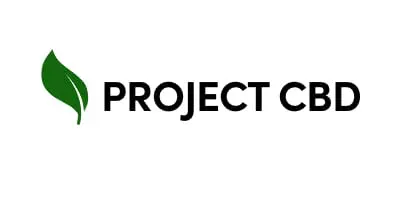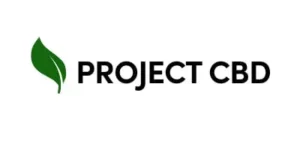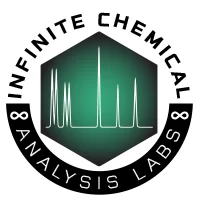// Hemp vs Cannabis CBD
At Mammoth Holistics, one of our core values is to educate the community on the benefits of cannabis and how to consume it safely and successfully. For us, this means compiling all of the most accurate, science-backed information available and providing it to consumers so that they are empowered to make informed decisions about their health. As advances in medical cannabis research have and continue to shed light on the many therapeutic benefits that the plant has to offer, it has quickly gained in popularity, and for good reason. Unfortunately, it is easy to become confused by the vast onslaught of information—and misinformation—that we are bombarded with on a daily basis. One such topic includes the difference between cannabis versus hemp; for instance, the differences, safety, and legality of such products. For this reason, we strive whenever possible to provide clarification on this complicated subject.
The following information was originally created for our sister site, torreyholistics.com.
What are cannabis and hemp, and how are they different?
Cannabis and hemp are both varieties of the Cannabis sativa species. Cannabis (not to be confused with its broader species Cannabis sativa) is known botanically as the “drug-type” plant, or colloquially as marijuana, weed, pot, bud, ganja, etc., and yields a high resin content in its flowers. Occurring in this resin are over 500 different compounds, including cannabidiol (CBD) and tetrahydrocannabinol (THC). Hemp, on the other hand, yields a low resin content in its flowers and produces minute amounts of CBD. Industrial hemp is a durable and sustainable source of items such as paper, cloth, ink, and even cars.
What is the legality of cannabis and hemp?
On the federal level, both cannabis and hemp were outlawed by the passage of the Controlled Substances Act of 1970. As two varieties of Cannabis Sativa, the Act prohibited “the resin extracted from any part of such plant; and every compound, manufacture, salt, derivative, mixture, or preparation of such plant, its seeds or resin.” While the flowers of both plants produce resin—where CBD is produced, cannabis flowers produce a much higher volume than hemp flowers, as well as over 500 other compounds that interact synergistically to create therapeutic effects greater than just one compound alone.
Cannabis also produces THC, the compound responsible for producing the mind-altering effects we often associate with cannabis use. In 2018, passage of the Farm Bill differentiated hemp from cannabis, defining it (somewhat arbitrarily) as any variety of Cannabis sativa that expresses less than 0.3% THC by dry weight volume (by contrast, cannabis plants typically produce anywhere from 5-30% THC). The bill legalized the growing and manufacturing of hemp for industrial purposes, meaning the non-resinous parts of the plant could be harvested and made into items such as clothes, soap, ink, and even cars. The resin-producing parts of the plant are essentially discarded as industrial waste.
So what prevents someone from growing hemp as a means to harvest its CBD-producing flowers? To make matters more complicated, the Federal Food, Drug, & Cosmetics Act of 1938 allowed the FDA to regulate the addition of health supplements to—you guessed it—food, drugs, and cosmetics. Despite the legalization of hemp, CBD is still considered an unregulated supplement, prohibiting its use in any product intended for therapeutic relief. Not only does this mean food, candy, oils, and other ingestibles, but also lotions, creams, bath bombs, patches, and more.
Within California, the passage of Proposition 64 in 2018 legalized the THC-producing variety of Cannabis sativa for recreational use, under the caveat that it be closely regulated by the newly-appointed state Bureau of Cannabis Control. Any product made from a plant producing over 0.3% THC is subject to their regulations and can only be sold and purchased through licensed dispensaries and delivery services. Nowhere in the proposition does it touch upon products made with hemp-derived CBD, because these products still fall under the jurisdiction of the FDA. Ultimately, nowhere in the US are you legally allowed to add CBD—derived from hemp or otherwise—to an over-the-counter product. The only exception to this rule is the one FDA-approved CBD drug, Epidiolex, which can only be obtained with a doctor’s prescription. Any CBD product that can be bought outside of a dispensary is not regulated, therefore making it legally ambiguous and potentially unsafe.
How safe are cannabis and hemp products?
The regulations on cannabis products imposed by the California Bureau of Cannabis Control are scrutinous and a boon to consumers. Each and every product sold in a licensed dispensary must be tested rigorously for pesticides, heavy metals, mold, and a variety of other toxins in order to ensure their safety. While hemp-derived CBD products are widely available at convenience stores, street markets, hair salons, and more, consumers are not guaranteed that their purchases are free of these toxic substances; remember, hemp may only be grown for industrial purposes and is not held to the same consumer safety standards as its counterpart. The more responsible hemp companies will subject their products to testing and make the results available publicly. However, one word of caution on this point: always look into the testing facility employed, as some are not state-approved and may engage in irresponsible testing and reporting practices, such as misconstruing results.
Do hemp products work as well as cannabis products?
CBD, when taken alone, does offer some health benefits, such as relieving minor aches, pains, and abrasions and promoting general wellbeing. That being said, there is significant evidence that CBD taken in the presence of THC and other compounds found in the cannabis plant increases its therapeutic potential exponentially. This concept is known as the Entourage Effect. Whereas cannabis flowers produce over 500 cannabinoids (like THC and CBD), terpenes (aromatic compounds), and flavonoids (pigment-producing compounds) in varying combinations, hemp produces just one compound: CBD. Incorporating whole-flower cannabis products into one’s lifestyle is recommended for alleviating more serious health concerns, such chronic pain, anxiety, depression, and more. The greatest part about the newly-legal cannabis market is that there are products available that are very low in THC, so much so that consumers can experience the full entourage effect without the psychoactivity that can be adverse to some.
What’s in my hemp product?
CBD—whether from cannabis or hemp—can offer a myriad of health benefits, and emerging research continues to validate the anecdotal experiences of veteran consumers everywhere. There are plenty of honest, reputable hemp brands on the market. That being said, with no regulatory oversight, many are eager to cash in on the newest wellness craze. In order to circumvent the confines of the law, many companies will market their products as being made from hemp while containing no CBD at all. They recognize the confusion around hemp, cannabis, CBD, “The Oil,” etc. and capitalize on the misconception that all hemp products contain CBD. This is false; a product can be made with hempseed oil or hemp stalk, which do not yield the resin in which CBD occurs. In addition, a product may proudly claim to have upwards of 1,000 milligrams, but neglect to specify that they are referring to total plant matter—not CBD itself. Numerous studies, including our own, have found that a large portion of the products available in the marketplace today do not contain any CBD whatsoever, absolving them from the scrutinizing eye of the FDA.
Other mis-marketing tactics used by hemp companies include using fancy but meaningless terms such as “nano-emulsified,” “whole plant,” “bio-available,” or “full-spectrum” hemp (if you recall, hemp only produces CBD—no other cannabinoids, terpenes, or flavonoids that would qualify it as “full-spectrum”).
Can my hemp product cause me to fail a drug test?
With the passage of Proposition 64, California’s Adult Use of Marijuana Act in 2018, millions of employers (and employees) are asking the question, “what about drug testing in the workplace?” Employees who use CBD for pain, inflammation or various other reasons can now accidentally (and unfairly) fail a drug test.
The most common form of drug testing for employees is a urine test. Employers do not look for CBD in a drug test. CBD is non-psychoactive and non-intoxicating; it does not impair judgement or prohibit motor skills, balance or stability. When you fail a drug test, it is because your employers are screening for THC. This cycles back to the big question when it comes to conscience consumption: what’s in my hemp product? Many companies have jumped on the “CBD only” bandwagon, marketing their products as “hemp-derived CBD with no THC.” But without regulatory oversight, many products will contain THC in minor quantities. The low levels of THC found in many “hemp CBD” products can persist in the human body for weeks, and potentially result in failed drug tests. Mislabeling of THC content in the unregulated CBD market is common, as we found in our own investigation.
Read More about Drug Testing here.




